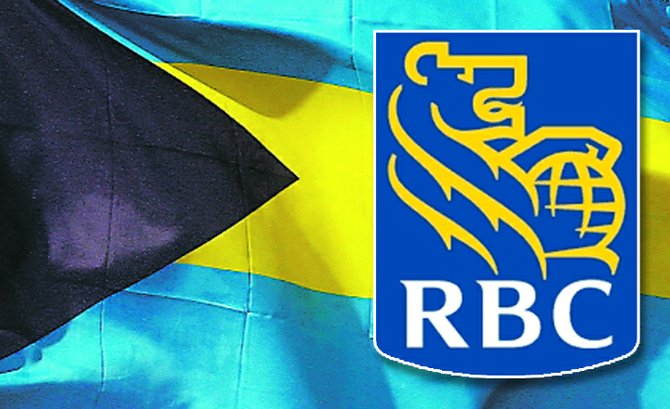By NEIL HARTNELL
Tribune Business Editor
US regulators have alleged that Royal Bank of Canada blamed staff at its Bahamian branch for playing the lead role in devising a "massive wash trading scheme" worth hundreds of millions of dollars, which it executed through this nation and the Cayman Islands.
The Commodities and Futures Trading Commission (CFTC), in a lawsuit filed in the US southern district court for New York on Monday, alleged that Royal Bank engaged in the non-competitive selling of exchange-traded stock futures contracts with its Bahamas and Cayman Island branches.
It was alleged to have conducted this activity as 'block' trades through the OneChicago futures exchange, using "wash and fictitious sales" that were not independent, arm's length sales between two different counterparties. This, the CFTC alleged, breached US law and were designed to enable Royal Bank to access tax benefits from holding certain public companies' securities in Canadian and offshore accounts.
"Royal Bank of Canada (RBC) executed its..... trades through two of its branches and one set of internal RBC accounts, opposite two RBC subsidiaries," the CFTC lawsuit alleged.
"The two branches were RBC Bahamas branch and RBC Cayman branch (together, the Caribbean), branches of RBC located in the Bahamas and Cayman Islands that were not stand-alone legal entities.
"The internal set of accounts, which also was not a stand-alone legal entity, was known as Canadian Transit and housed in Toronto. The two subsidiaries were RBC Capital Markets Arbitrage S.A (CMA), a Luxembourg-based subsidiary of RBC with offices in New York; and RBC Europe, a United Kingdom-based bank subsidiary of RBC with offices in London."
There is no suggestion that Royal Bank of Canada's Bahamas then-branch, which is now a subsidiary, nor any of its employees, officers or directors, did anything wrong in relation to the scheme described by the CFTC.
A Royal Bank of Canada spokeswoman denounced the allegations yesterday as "absurd". The 25-page civil lawsuit is "meritless and we will rigorously defend ourselves against such baseless allegations", the bank said in a statement.
The CFTC lawsuit alleged that when OneChicago's regulatory overseer began to query the trades, the general counsel for Royal Bank's capital markets unit replied, on November 17, 2005, that its Bahamian branch staff played the lead role in devising the arrangement.
The general counsel allegedly replied: "The idea of engaging in OneChicago single stock future block transactions originated with the staff in our Bahamas office.
"The decision to engage in the block transactions was then made between the Royal Bank affiliates involved in the transactions (primarily RBC (Bahamas branch) and CMA) after discussions between them."
The CFTC, though, alleged that the strategy had been developed at Royal Bank's corporate level, including by the head of global arbitrage and trading for its Caribbean branches.
"The idea of engaging in OneChicago single stock future block transactions did not 'originate' with the staff in [RBC' s] Bahamas office, but was instead conceived by CFG Member 1 and proposed to RBC management when CFG Member 1 was a managing director of RBC Capital Markets working in RBC's London office," the CFTC lawsuit alleged.
"The RBC branches and subsidiary that engaged in SSF trading did not 'independently come up with the idea and strategies to trade' SSFs. Instead, CFG Member 1 devised the idea to trade SSFs between RBC-affiliated counterparties and created the futures trading strategies for both counterparties to the trades."
The CFTC alleged that Royal Bank of Canada attempted to give the trades "the appearance of being the result of independent decisions by its branches and subsidiaries to buy and sell futures contracts", when instead they were controlled and devised by a small group of senior executives.
The US regulator claimed that between 2005 and May 2010, transactions between the Bahamas/Cayman Islands and the Luxembourg affiliate accounted for 51 per cent of the volume in a particular type of trade on OneChicago. In 2006 and 2007 respectively, these deals accounted for 87 per cent and 72 per cent of this particular trade type.





Comments
Use the comment form below to begin a discussion about this content.
Sign in to comment
OpenID